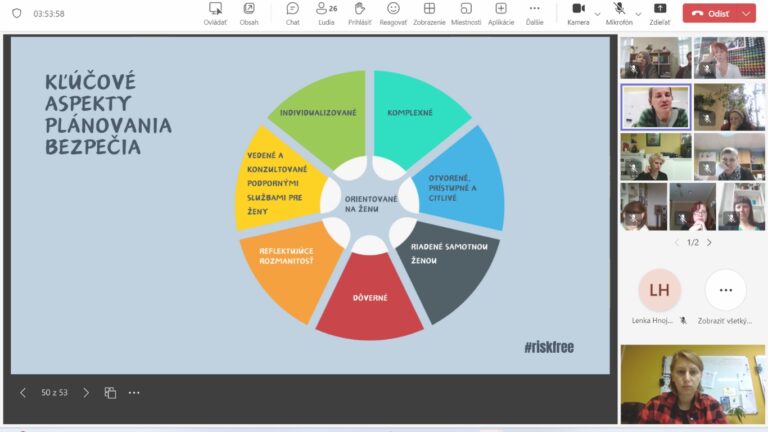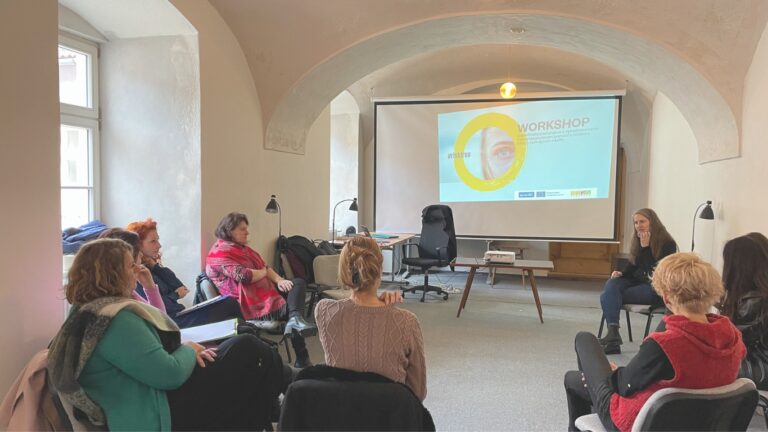This week, we have continued our series of workshops for the professional public on the issue of intimate partner violence against women, focusing on risk assessment and safety of women and their children.
One of the two workshops we organised was for counselling and intervention centres and women’s shelters, which provide women with both crisis and long-term help and support, including legal aid. The workshop was online and was attended by 33 participants.

They had varying experiences with risk assessment tools – some organisations use a standardised risk assessment tool with a questionnaire, others do not use a questionnaire. Feedback provided at the end of the workshop indicated that most of them found the training useful and interesting. Most expressed interest in further workshops to share experiences on identifying and assessing risk factors, some specific risk factors and ways in which they can influence safety planning with women in more detail.
The second workshop was attended by representatives of various professions and organisations in Rožňava – the child protection authority, social workers from the local Centre for Children and Family, a representative of the Social Affairs Department of the City of Rožňava or a psychologist and a barrister from an NGO providing help to victims of violence.

Although the workshop participants were from different institutions or organisations, all of them confirmed that in their work they deal with women experiencing intimate partner violence and/or their children. As they do not specialise in this area, they found the information provided at the workshop very useful, including the risk factors and subsequent safety planning with women and children.

The workshops were carried out within the project “Protection of victims of gender-based violence – response to pandemic challenges (RISKFREE)” financed by the Citizens, Equality, Rights and Values programme (CERV) of the European Commission.
“Funded by the European Union. Views and opinions expressed are however those of the author(s) only and do not necessarily reflect those of the European Union or [name of the granting authority]. Neither the European Union nor the granting authority can be held responsible for them.”










